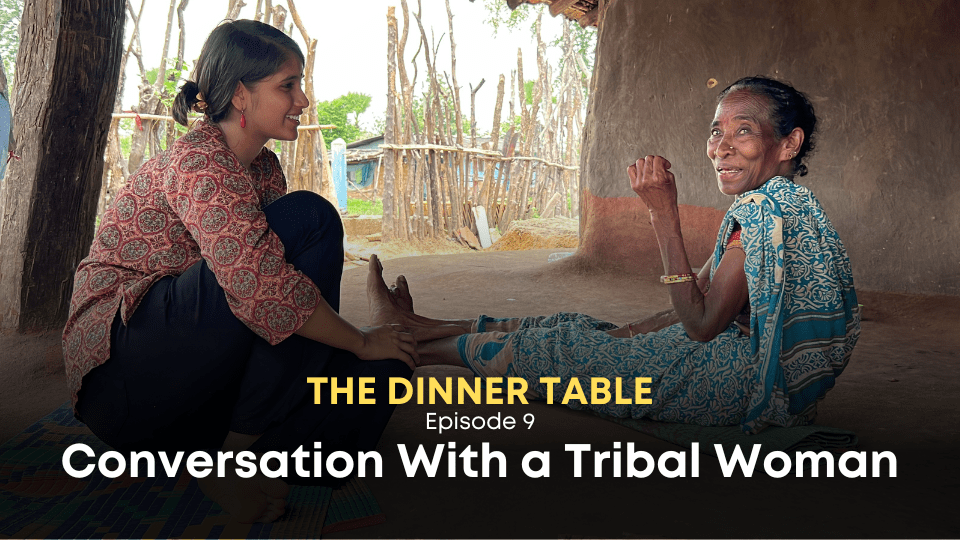Dinner With a Tribal Woman: ‘My Sons Weren’t Maoists’
‘The Dinner Table,’ a Docuseries by Harshita Rathore
January 4, 2025
By Harshita Rathore
An elderly woman, Shanti Devi, resides alone in a village within the Bijapur district of Chhattisgarh state, part of the larger Bastar Division. Following the tragic loss of her two sons, Nagesh and Suresh, in a 2012 shootout—claimed by security forces as an anti-Maoist operation—an official investigation later revealed that her sons, among others killed, were not Maoist rebels, also known as “Naxals.” In this 9th episode of “The Dinner Table,” host Harshita Rathore prepares a meal with Shanti Devi and sits down to share it with her and her surviving son, engaging in heart-to-heart conversations.
The episode explores Shanti Devi’s life against the backdrop of successive Chhattisgarh governments being criticised for significant human rights violations in their efforts to suppress the Maoist movement. Chhattisgarh has a significant population of tribal communities, which account for about one-third of the state’s total population.
One notable example is Salwa Judum, a controversial civilian militia movement initiated by the Chhattisgarh government and supported by some groups in other states. Officially established in 2005 during the tenure of Chief Minister Raman Singh, its goal was to combat Maoist groups in the region by recruiting local tribal youth to fight the Maoists, providing them with training and arms under the supervision of the state police and central government forces.
However, Salwa Judum encountered substantial criticism and faced allegations of human rights abuses, including forced displacement, the destruction of villages, and other violent acts against civilians. Critics argue that the movement exacerbated the conflict in the region, leading to heightened violence and increased civilian suffering.
In 2011, the Supreme Court of India ruled Salwa Judum illegal and unconstitutional, mandating its disbandment and criticising the government for arming civilians in such a manner. The legacy of Salwa Judum continues to affect the social and political landscape in Chhattisgarh and surrounding areas, with ongoing debates concerning the state’s strategies in addressing the Maoist insurgency.

